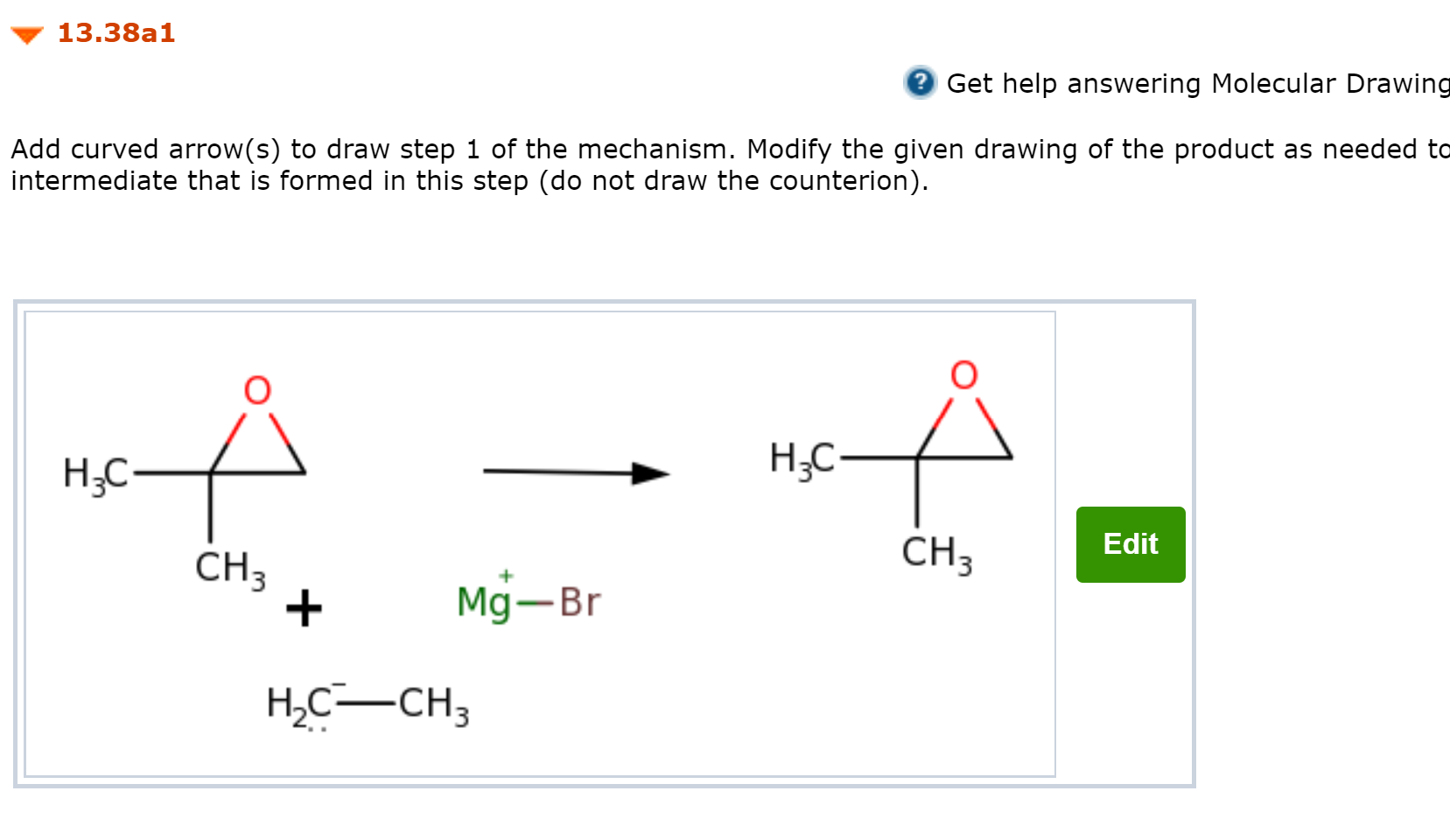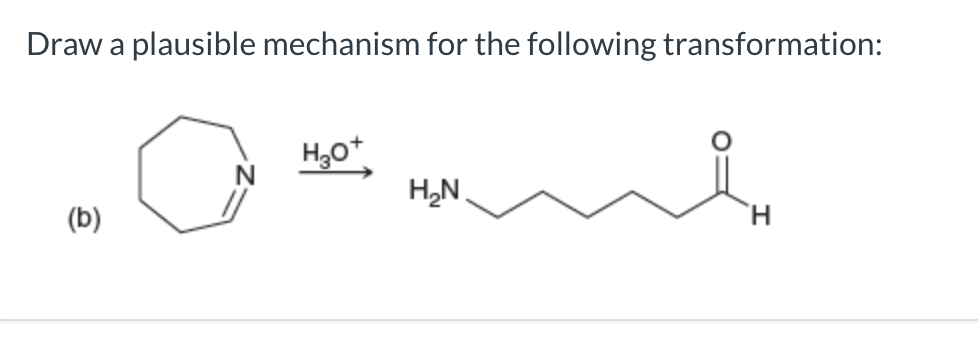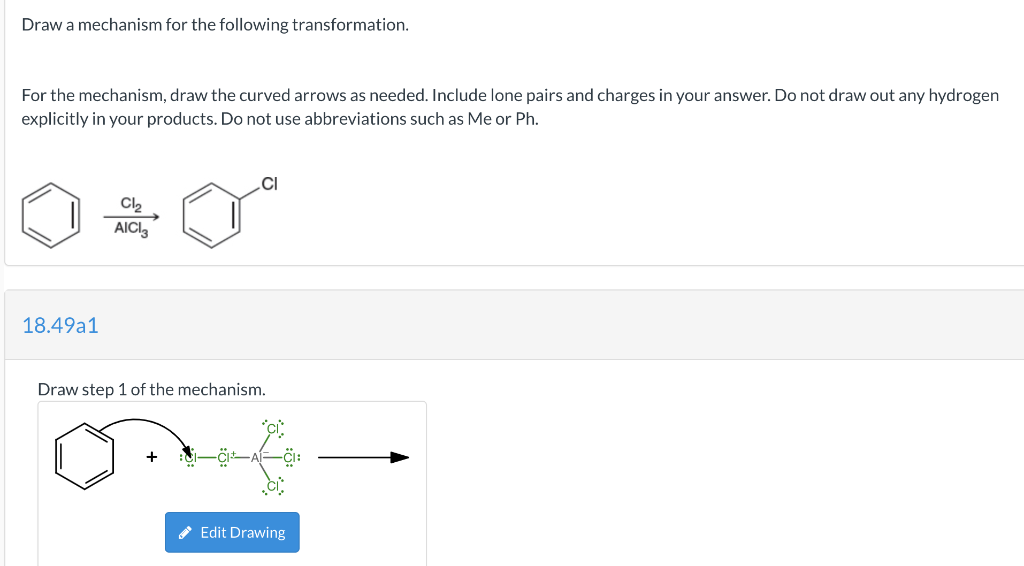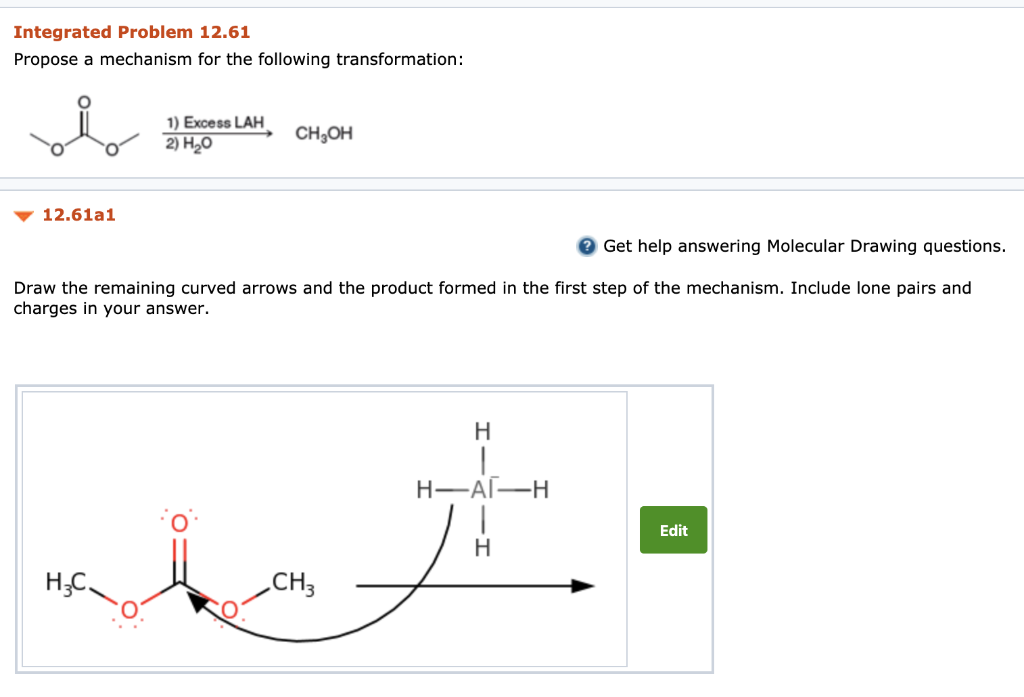Nov 16, 2023Provide a mechanism for the following transformation. Remember, SmI 2 is an excellent single electron donor. Hint: At some point in the mechanism you will need to form an alpha-N radical (a radical on a carbon next to the N). Answer. Samarium diiodide starts the reaction by donating an electron (Single Electron Transfer (SET)), to the carbonyl.
Solved Draw a plausible mechanism for the following | Chegg.com
Simplifying Organic Chemistry. Orgosolver provides study tools to help students with their organic chemistry homework and preparation for quizzes, exams, or even the MCAT. Our tools, quizzes, and study guides are designed to help students test every reaction or mechanism with any molecule they draw!

Source Image: pinterest.com
Download Image
Draw a mechanism for the following reactions. Provide the step-by-step synthesis of the below-mentioned transformation reaction. Draw a stepwise mechanism for the dienone-phenol rearrangement, a reaction that forms alkyl-substituted phenols from cyclohexadienones. Draw a mechanism for this given chemical reaction.

Source Image: pinterest.com
Download Image
Solved 7.70 Draw a plausible mechanism for each of the | Chegg.com Endometrial Polyps can arise as a side effect of? strong base added to strong acid. 1 / 4. Find step-by-step Organic chemistry solutions and your answer to the following textbook question: Propose a plausible mechanism for the following transformation For the mechanism, draw the curved arrows as needed. Include lone pairs and charges in your

Source Image: chegg.com
Download Image
Draw A Mechanism For The Following Transformation
Endometrial Polyps can arise as a side effect of? strong base added to strong acid. 1 / 4. Find step-by-step Organic chemistry solutions and your answer to the following textbook question: Propose a plausible mechanism for the following transformation For the mechanism, draw the curved arrows as needed. Include lone pairs and charges in your In general, two kinds of curved arrows are used in drawing mechanisms: A full head on the arrow indicates the movement or shift of an electron pair: A partial head (fishhook) on the arrow indicates the shift of a single electron: The use of these symbols in bond-breaking and bond-making reactions is illustrated below.
Solved Practice Problem 13.38a Propose a plausible mechanism | Chegg.com
Trost discovered the following transformation while investigating the total synthesis of pseudolaric acid B. Propose a mechanism to explain this reaction. Answer. The key step in this mechanism is a pinacol rearrangement. The epoxide adds to the Lewis acid, then opens up to form a tertiary allylic carbocation. Draw the mechanism for the following reaction. What type of reaction is this? | Homework.Study.com

Source Image: homework.study.com
Download Image
Solved the skill 20.8 Draw a plausible mechanism for each of | Chegg.com Trost discovered the following transformation while investigating the total synthesis of pseudolaric acid B. Propose a mechanism to explain this reaction. Answer. The key step in this mechanism is a pinacol rearrangement. The epoxide adds to the Lewis acid, then opens up to form a tertiary allylic carbocation.

Source Image: chegg.com
Download Image
Solved Draw a plausible mechanism for the following | Chegg.com Nov 16, 2023Provide a mechanism for the following transformation. Remember, SmI 2 is an excellent single electron donor. Hint: At some point in the mechanism you will need to form an alpha-N radical (a radical on a carbon next to the N). Answer. Samarium diiodide starts the reaction by donating an electron (Single Electron Transfer (SET)), to the carbonyl.

Source Image: chegg.com
Download Image
Solved 7.70 Draw a plausible mechanism for each of the | Chegg.com Draw a mechanism for the following reactions. Provide the step-by-step synthesis of the below-mentioned transformation reaction. Draw a stepwise mechanism for the dienone-phenol rearrangement, a reaction that forms alkyl-substituted phenols from cyclohexadienones. Draw a mechanism for this given chemical reaction.

Source Image: chegg.com
Download Image
Draw a mechanism for the following transformation (A + B rightarrow C), indicating all key intermediates, showing lone pairs on all heteroatoms and showing all formal charges. [{Image src=’reaction341 | Homework.Study.com VIDEO ANSWER: The mechanism for the following transformation is drawn from questions. To answer this question correctly, we need to know a bit about the inflammations before we start. The first thing we need to know is the chemical structure of the … I’m sorry, but I cannot draw mechanisms as I am a text-based AI.

Source Image: homework.study.com
Download Image
Solved Draw a mechanism for the following transformation. | Chegg.com Endometrial Polyps can arise as a side effect of? strong base added to strong acid. 1 / 4. Find step-by-step Organic chemistry solutions and your answer to the following textbook question: Propose a plausible mechanism for the following transformation For the mechanism, draw the curved arrows as needed. Include lone pairs and charges in your

Source Image: chegg.com
Download Image
Solved Integrated Problem 12.61 Propose a mechanism for the | Chegg.com In general, two kinds of curved arrows are used in drawing mechanisms: A full head on the arrow indicates the movement or shift of an electron pair: A partial head (fishhook) on the arrow indicates the shift of a single electron: The use of these symbols in bond-breaking and bond-making reactions is illustrated below.

Source Image: chegg.com
Download Image
Solved the skill 20.8 Draw a plausible mechanism for each of | Chegg.com
Solved Integrated Problem 12.61 Propose a mechanism for the | Chegg.com Simplifying Organic Chemistry. Orgosolver provides study tools to help students with their organic chemistry homework and preparation for quizzes, exams, or even the MCAT. Our tools, quizzes, and study guides are designed to help students test every reaction or mechanism with any molecule they draw!
Solved 7.70 Draw a plausible mechanism for each of the | Chegg.com Solved Draw a mechanism for the following transformation. | Chegg.com VIDEO ANSWER: The mechanism for the following transformation is drawn from questions. To answer this question correctly, we need to know a bit about the inflammations before we start. The first thing we need to know is the chemical structure of the … I’m sorry, but I cannot draw mechanisms as I am a text-based AI.